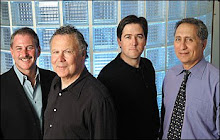Previous settlement with other defendants garnered additional 1.8 million dollars.
Stephen Allen Jamieson won a jury trial in the amount of $7.57 million dollars on behalf of a 19-year-old who had received a medical treatment far below the standard of care including a misdiagnosis of a bleed on his brain. This case was tried in Los Angeles County Superior Court, Southwest District (Torrance) before the Honorable Lois Smaltz.
In September 1995, the then 16-year-old plaintiff was practicing with his high school football team when he sustained several hard hits to the head from another player. In the evening his parents took him to the Urgent Care Center. The doctor failed to properly diagnose the problem as a concussion. There were no radiographic films done, no CT scan done. The doctor misdiagnosed the problem as dehydration and failed to place any definite limitation of the plaintiff's participation in football over the next few days.
Two days later, the teenager collapsed on the playing field within a few minutes of the start of the football game. He was later diagnosed with a massive brain hemorrhage and was comatose for a month. He was left with brain damage resulting in loss of function in one arm and one leg and cognitive deficiencies.
Solomon, Saltsman and Jamieson filed a lawsuit for negligence against the school district as well as the doctor, the Urgent Care Center for which he worked, and the hospital that sponsored the Urgent Care Center.
The defendants in this action vigorously litigated this matter. There were over thirty depositions taken. Expert witnesses were required in many different fields such as athletic training, accident reconstruction, biomechanics, engineering and sports of psychology. The malpractice issue required the hiring of medical experts such as a neuropsychiatrists and psychologists. After more than two years, Mr. Jamieson and Stephen W. Solomon settled with the school district for $1,800,000.
Four months later Stephen Jamieson took the case against the urgent care doctor and his employers to trial before a superior court in Torrance, California. The medical issues were perceived by the defense to be the weaker portion of the case, particularly considering that Torrance is a relatively conservative jurisdiction, and that there are inherent difficulties associated with a medical malpractice action (i.e., MICRA limitations).
Therefore, the defense offered only $50,000 prior to trial. After three weeks in trial, Mr. Jamieson convinced the jury to return a verdict in the amount of $7,570,000.
